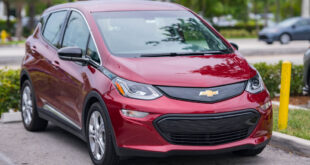Electric Car Maintenance Costs: Save Money and Time Electric vehicles (EVs) are revolutionizing the way we think about transportation, offering eco-friendly solutions without compromising on performance. However, understanding electric car maintenance costs is essential for ensuring your EV remains efficient and cost-effective over its lifetime. In this article, we’ll delve into every aspect of maintaining an electric car, providing practical tips, a detailed FAQ, and a clear conclusion to help you navigate the world of EV ownership.
Understanding Electric Car Maintenance Costs
1. What Makes Electric Cars Different?
Unlike traditional internal combustion engine (ICE) vehicles, EVs rely on electric motors and battery packs. This fundamental difference significantly reduces the number of moving parts, leading to fewer breakdowns and lower maintenance needs.
2. Key Maintenance Areas for EVs
- Battery Health: The most critical component, requiring regular checks and potential replacements after 8–10 years.
- Tires: EVs tend to be heavier, increasing tire wear and necessitating more frequent replacements.
- Brakes: Regenerative braking reduces wear, making them last longer than those in ICE vehicles.
- Coolant Systems: Some EVs require battery cooling system maintenance every 2–5 years.
3. Cost Comparison with Gasoline Cars
Studies indicate EV maintenance costs are 20–30% lower than ICE vehicles due to:
- Fewer oil changes
- Reduced transmission issues
- Less frequent brake repairs
Factors Influencing Maintenance Costs
1. Battery Replacement
Battery packs are the most expensive EV component, costing between $5,000 and $15,000. However, most batteries come with warranties lasting 8–10 years or 100,000 miles.
2. Software Updates
Regular software updates, often delivered over-the-air, ensure optimal performance but may require occasional dealer visits for advanced diagnostics.
3. Charging Infrastructure
While home charging is convenient, public chargers may incur additional maintenance costs for adaptors or repairs.
4. Manufacturer and Model
Maintenance costs vary across brands. Premium EVs may demand higher upkeep costs due to specialized components.
Tips to Minimize Electric Car Maintenance Costs
- Monitor Battery Health: Avoid deep discharges and extreme temperatures to extend battery life.
- Regular Tire Inspections: Ensure proper alignment and inflation to prevent excessive wear.
- Use Regenerative Braking Wisely: Maximize energy recovery while reducing brake pad wear.
- Schedule Software Updates: Keep your car updated to avoid performance lags.
- Invest in Home Charging: Reduce dependency on public chargers for cost efficiency.
- Check Manufacturer Guidelines: Adhere to recommended service schedules.
- Clean Cooling Systems: Maintain proper airflow around the battery.
- Inspect Suspension Regularly: Heavy EVs can strain suspension systems.
- Avoid Overloading the Vehicle: Excessive weight impacts performance and component lifespan.
- Maintain Warranty Coverage: Stay within warranty limits to minimize unexpected expenses.
Frequently Asked Questions (FAQs)
1. How often do electric cars need maintenance?
Electric cars require less frequent maintenance compared to gasoline cars. Most routine checks are annual or bi-annual.
2. Is EV maintenance cheaper than gasoline cars?
Yes, EV maintenance costs are typically 20–30% lower due to fewer mechanical parts.
3. What is the lifespan of an EV battery?
Most EV batteries last 8–10 years or 100,000–150,000 miles.
4. Do EVs need oil changes?
No, EVs do not require oil changes as they lack traditional engines.
5. How do I know if my EV battery needs replacement?
Signs include significant range loss or frequent charging needs.
6. Are electric cars more expensive to repair?
Repairs can be costly, especially for battery or specialized components, but occur less frequently.
7. What are common EV maintenance issues?
Tire wear, battery degradation, and software glitches are common concerns.
8. Can any mechanic service an electric car?
Only certified EV technicians should handle major repairs due to specialized equipment and training.
9. How do I maintain my EV during winter?
Precondition your battery, keep it charged, and use winter tires.
10. Does regenerative braking reduce maintenance costs?
Yes, it extends brake pad lifespan and improves overall efficiency.
Conclusion
Electric cars represent a sustainable, cost-effective alternative to traditional vehicles, especially when it comes to maintenance. While upfront costs may be higher, the long-term savings on maintenance and fuel are undeniable. By adhering to regular maintenance schedules and adopting smart driving habits, EV owners can maximize their vehicle’s lifespan and reduce overall expenses.
Switching to an electric vehicle is not just a financial decision but also an investment in a cleaner, greener future. As EV technology continues to evolve, maintenance costs are expected to decrease even further, making electric cars an increasingly attractive choice for environmentally-conscious drivers.
 oto car insurance used car repair
oto car insurance used car repair
